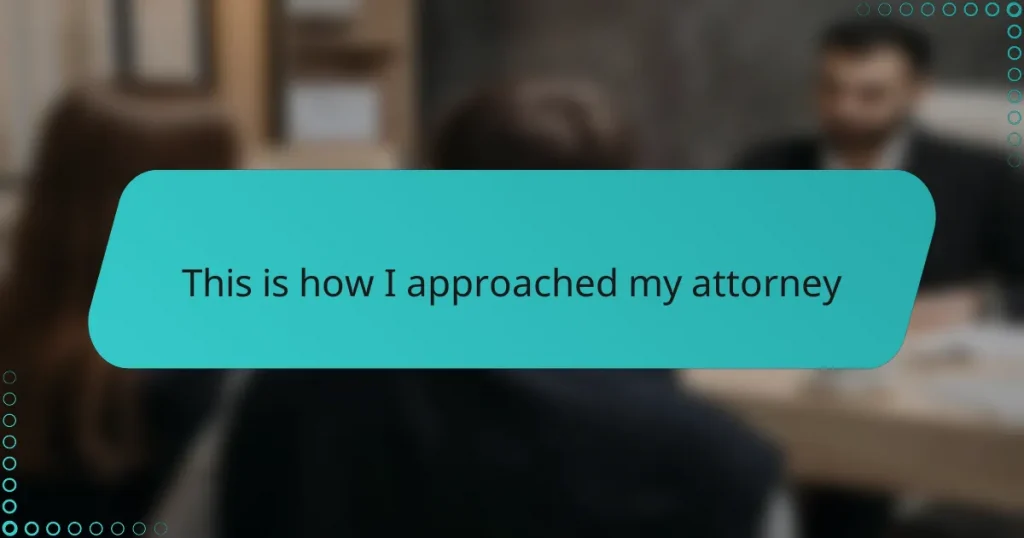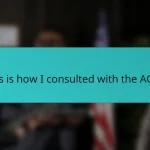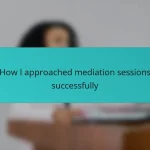Key takeaways
- Legal advocacy is a personal journey that prioritizes understanding a client’s story and emotional needs over just legal tactics.
- Choosing the right attorney involves assessing their empathy, communication style, and ability to connect with your personal situation.
- Clear communication about needs and expectations enhances the attorney-client relationship and fosters trust throughout the legal process.
- Setting realistic expectations regarding legal outcomes helps manage anxiety and creates a solid foundation for collaboration between client and attorney.
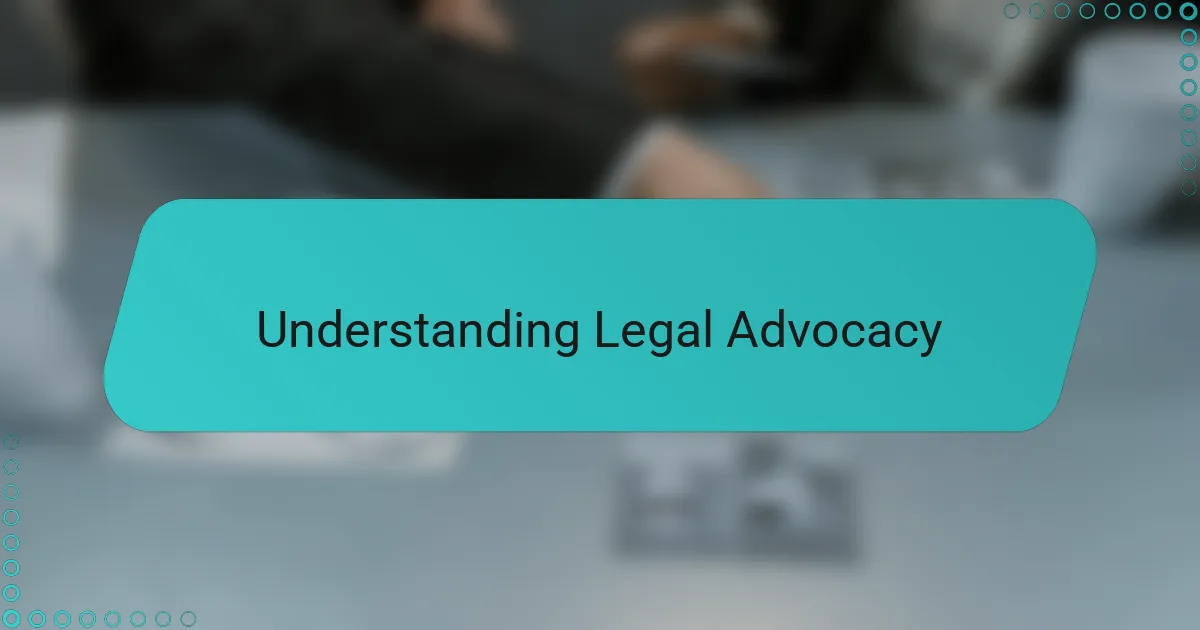
Understanding Legal Advocacy
Legal advocacy, to me, has always meant more than just navigating the complexities of the law. I see it as a bridge between feeling powerless and regaining control over a situation that deeply affects your life. Have you ever experienced that overwhelming sense of confusion when faced with legal jargon? That’s exactly where effective advocacy steps in.
In my experience, legal advocacy carries both a professional and a profoundly human element. It’s not just about arguing a case; it’s about understanding your story, your fears, and your goals. When I first approached my attorney, I realized that being heard was the most crucial part of the process—sometimes more important than winning the case itself.
What strikes me most about legal advocacy is its role as a voice for those who might otherwise be silenced. I often reflect on how transformative it feels when someone genuinely advocates for your rights. It’s not just legal work; it’s an emotional lifeline that restores hope.
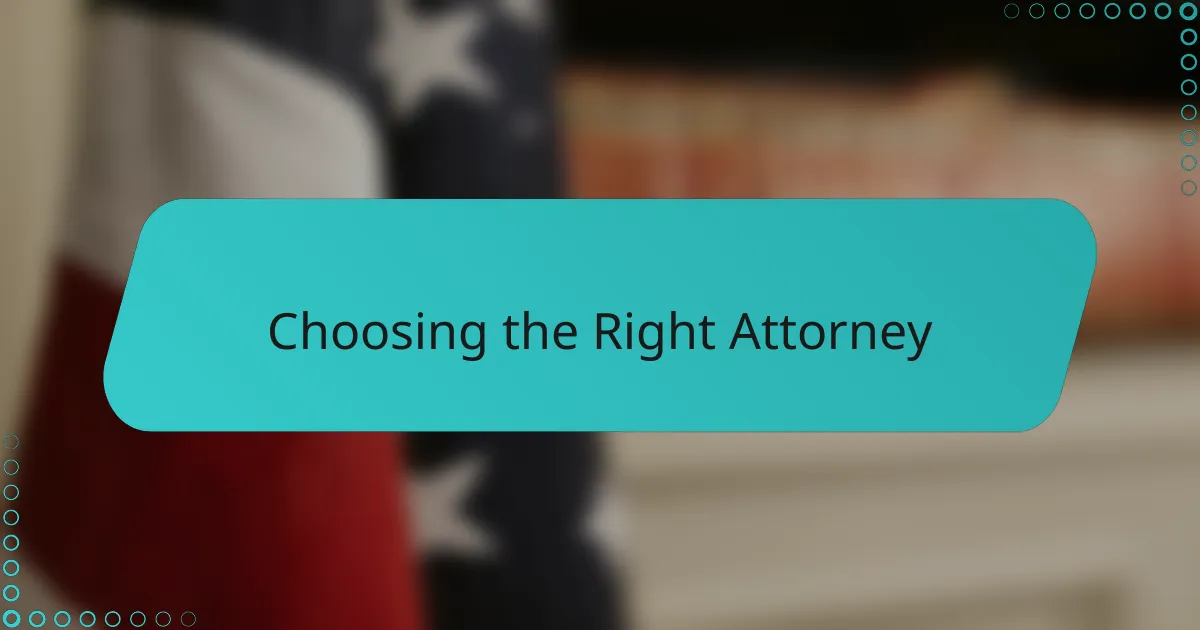
Choosing the Right Attorney
Choosing the right attorney felt like searching for a partner who truly understood the weight of my situation. I asked myself, “Does this person listen beyond the legal facts? Do they seem invested in me as a person?” That made all the difference when I finally opened up.
What helped me immensely was looking for someone whose approach aligned with my values. It wasn’t just about credentials or courtroom experience, but about feeling a connection—knowing they would champion my story with empathy and respect. Have you ever felt instantly put at ease by someone’s calm confidence? That’s exactly the kind of attorney I wanted by my side.
I also learned to trust my instincts when meeting potential attorneys. Sometimes, the way they explained complex legal terms or their willingness to answer even my simplest questions revealed how patient and committed they were. That patience made me feel less alone and more hopeful, which I believe is crucial when navigating legal challenges.
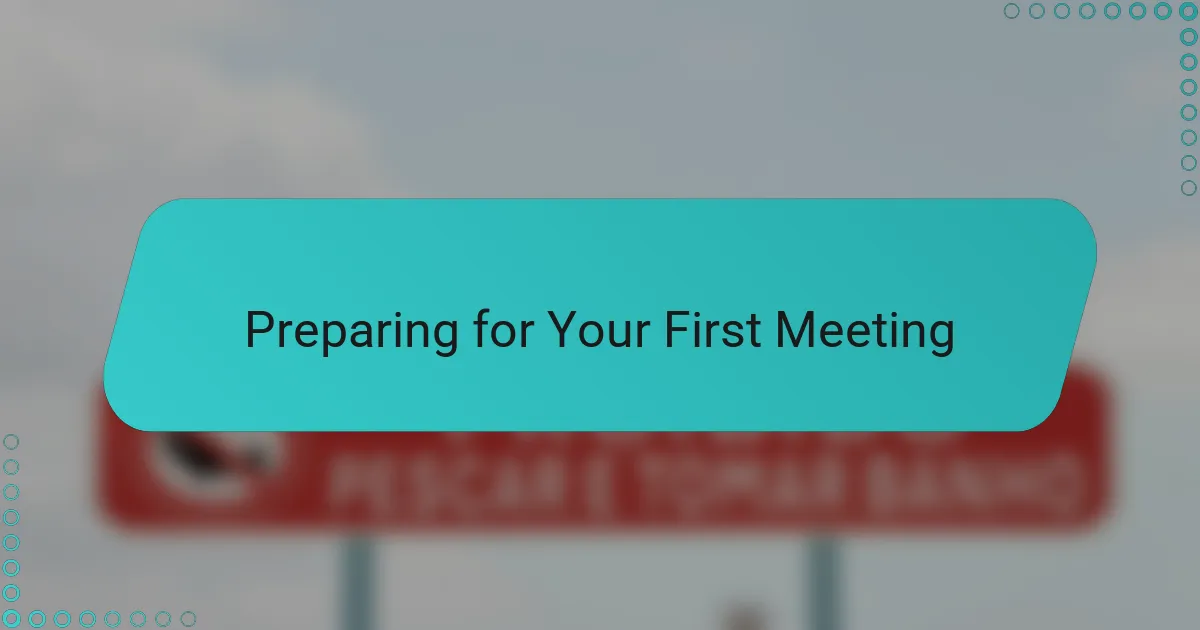
Preparing for Your First Meeting
Before walking into my first meeting, I made sure to gather all the documents and details related to my case. Having everything organized wasn’t just practical—it gave me a sense of control amid the uncertainty I felt. Have you ever noticed how small acts like this can ease some of the anxiety before discussing something so important?
I also spent some time jotting down the questions and concerns swirling in my mind. When you’re facing legal matters, it’s easy to get overwhelmed, and I found that this little habit helped me focus on what really needed to be addressed. Did I cover every question? Probably not, but it gave me a starting point to make sure I wouldn’t forget the most pressing issues.
What surprised me most was how important mentally preparing myself to be open and honest turned out to be. Sharing your story honestly can feel vulnerable, but I realized it was crucial for my attorney to understand the full picture. Have you ever hesitated to reveal parts of your story out of fear or doubt? I did, but letting go of that saved me from unnecessary confusion down the line.
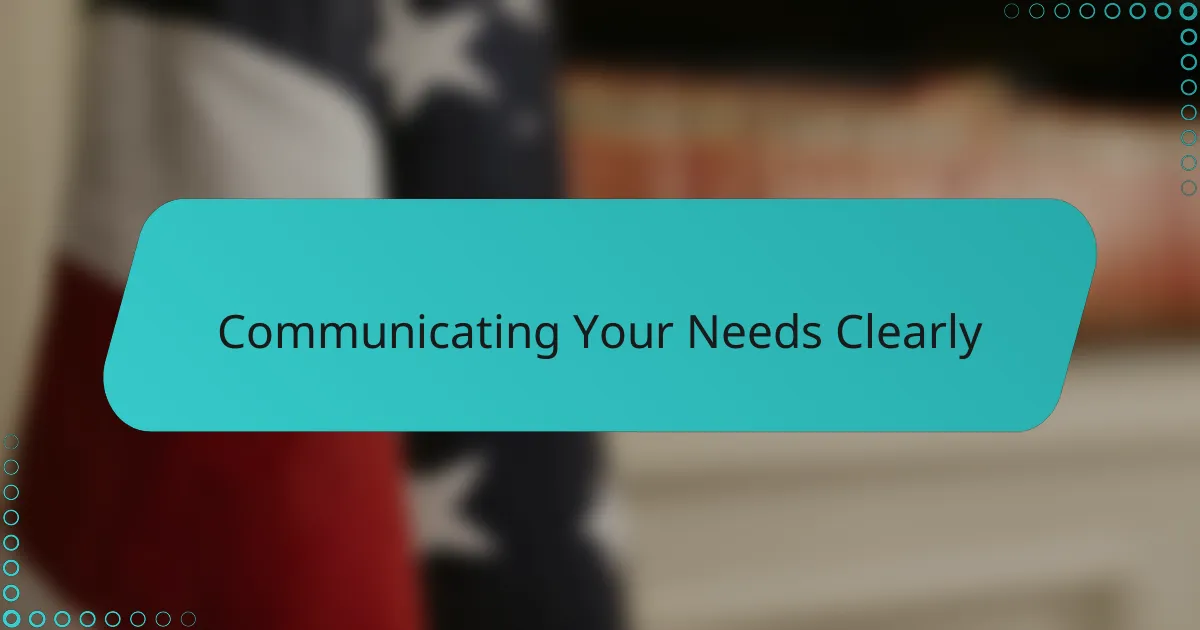
Communicating Your Needs Clearly
I found that being straightforward about what I needed from my attorney shaped the entire experience. Instead of assuming they knew my priorities, I took the time to express them clearly—whether it was seeking regular updates or understanding every step in plain language. Have you ever felt frustrated because someone missed the point of what you really wanted? I did, and making my needs explicit helped avoid that disconnect.
Sometimes, I caught myself holding back details, worried they might not seem relevant. Looking back, I realize how crucial it was to share everything openly. The clearer I was about my concerns and expectations, the more tailored the legal advice became. Have you ever been surprised by how much better things go when you just lay it all out?
What made the biggest difference was knowing that clarity isn’t just about information, but also about tone and timing. I learned to speak up early when doubts arose and to ask for clarification without hesitation. This simple practice transformed my attorney-client relationship from transactional to truly collaborative. Can you imagine how empowering it feels to be fully understood in such an important matter? I certainly can.
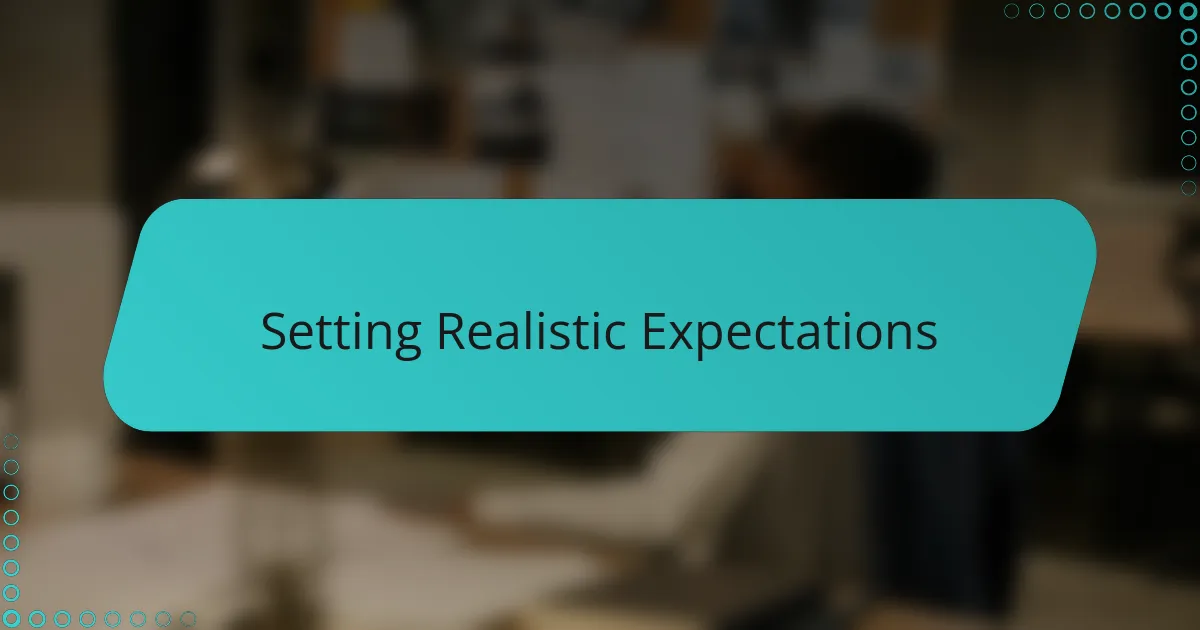
Setting Realistic Expectations
Setting realistic expectations was a lesson I had to learn the hard way. At first, I believed my attorney could promise a quick fix or a guaranteed win, only to realize that legal processes often move at their own pace and outcomes can be unpredictable. Have you ever felt that frustration when reality doesn’t match hope? It’s tough, but accepting that helped me stay grounded.
I also discovered that understanding what my attorney could and couldn’t do made a huge difference in how I approached our work together. Instead of hoping for a perfect solution, I focused on what was achievable given the circumstances. This mindset shift eased much of the anxiety I carried going into meetings.
What really helped was openly discussing potential challenges and setbacks from the start. My attorney was honest about the hurdles ahead, and knowing this upfront saved me from disappointment later. Have you ever wished someone had simply laid out the real picture earlier? I sure did, and that transparency became a foundation for trust in our partnership.
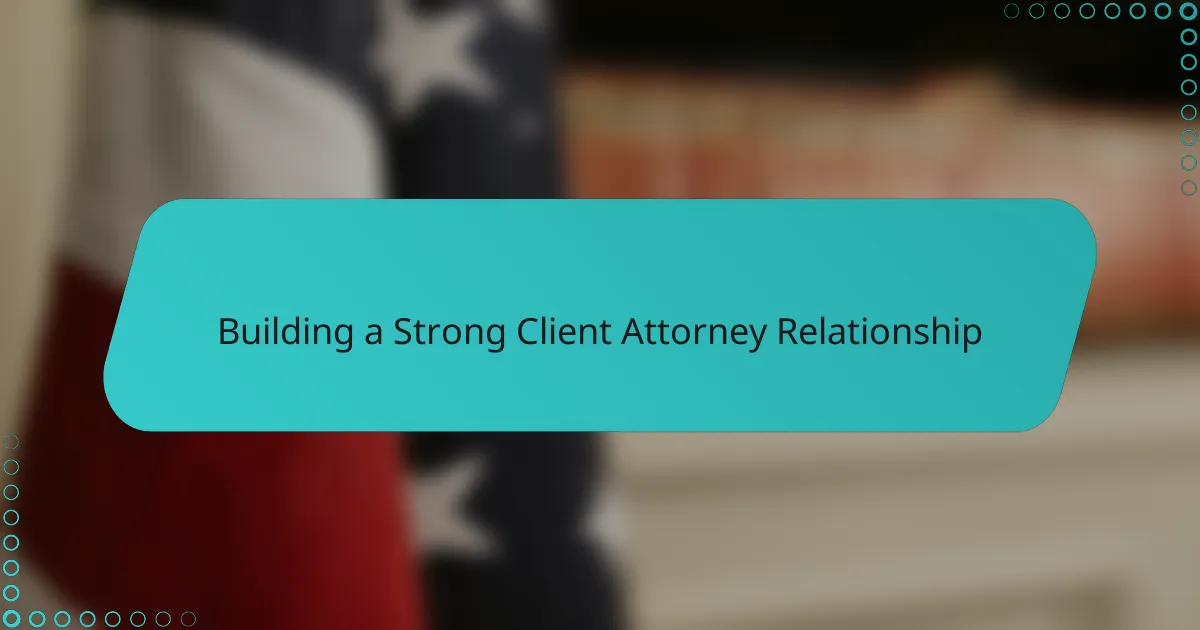
Building a Strong Client Attorney Relationship
Building trust took time—it wasn’t something that happened the moment I signed the retainer agreement. I remember feeling vulnerable sharing details I hadn’t even told my closest friends. But as my attorney listened without judgment, I sensed that this relationship was different; it was a safe space where my story mattered beyond the legal documents.
What really strengthened our bond was the open and ongoing communication. I asked a lot of questions, sometimes even repeating myself to make sure I understood. Have you ever noticed how just being heard with patience can make a challenging process feel less lonely? That’s exactly what happened to me, and it turned my anxiety into confidence.
Of course, building a solid relationship meant respecting professional boundaries while still being honest about my feelings and expectations. It wasn’t always easy balancing that, but I learned that transparency helped my attorney provide advice that truly fit my situation. Don’t you think having someone who not only knows the law but also genuinely cares changes everything? For me, it absolutely did.
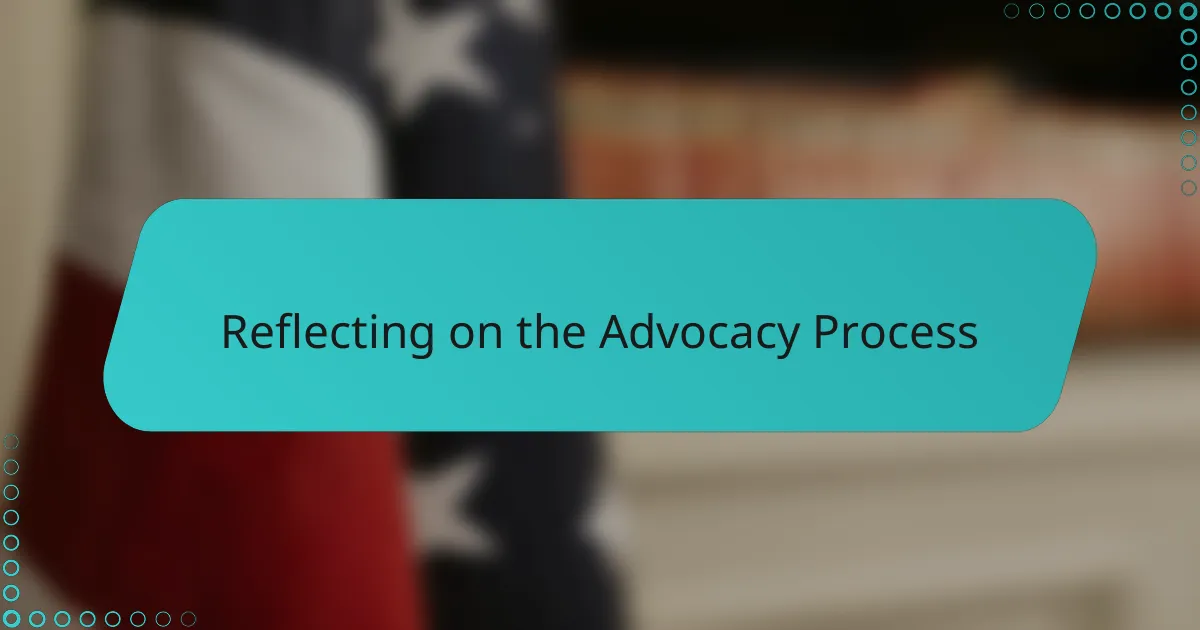
Reflecting on the Advocacy Process
Looking back on the advocacy process, I realize how much it was a journey of learning and adaptation. There were moments when I doubted if I was communicating well enough or if my concerns were truly understood. Have you ever found yourself second-guessing whether you made your point clear? I certainly have, and those doubts made me more intentional about speaking up.
What stands out most is how the process wasn’t just about legal strategy—it was a collaboration built on trust and patience. I remember feeling a mix of relief and apprehension after each meeting, wondering how the next step would unfold. But reflecting now, those feelings were part of what made me resilient and involved; it kept me engaged rather than passive.
Sometimes, I think about how crucial it was to stay mentally present and open throughout. Letting go of fear, admitting vulnerability, and embracing the unknown weren’t easy, but they shaped my experience far beyond the legal outcome. Doesn’t that human side of advocacy often get overlooked? For me, it was the heart of the whole process.
